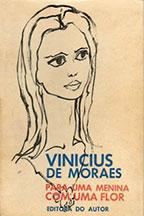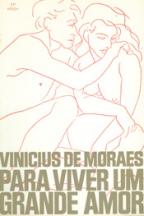Books of prose
Although Vinicius had established his public figure through poetry and popular song, he was one of the greatest prose writers of his generation. As a matter of fact, a generation where the good prose of that time was crystallized through a chronic genre extremely characterized by the style of Rio de Janeiro city.
With a large number of newspapers that circulated in the city and with a team of writers which would vary from Rubem Braga to Carlinhos de Oliveira, from Carlos Drummond de Andrade to Clarice Lispector, from Fernando Sabino to Nelson Rodrigues, Vinicius sit among them as a chronicler who transmitted to the prose, the same reasons and the same lightness of style that he presented to the public in his poems.
The Prose of Vinicius synthesizes, like few, a zeitgeist of the Brazilian literature and everyday life, crossed by his interest in his characters, in its landscapes and its great creators.

